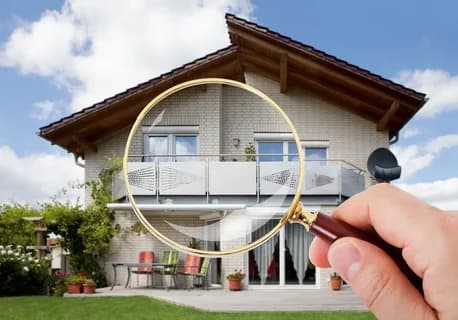Investing in real estate is a significant financial commitment, and as a property owner or landlord, it’s essential to safeguard your investment. Regular property inspections are a crucial component of property management that can help you protect your property, ensure tenant satisfaction, and maintain the overall value of your asset. In this comprehensive guide, we will explore the importance of regular property inspections, their benefits, how to conduct them effectively, and the potential consequences of neglecting this essential aspect of property management.
The Basics of Property Inspections
1.1 What Are Property Inspections?
Property inspections involve examining and evaluating the condition of a property, both the interior and exterior. They aim to identify issues, assess maintenance needs, and ensure the property complies with safety and legal requirements. Inspections can be scheduled at various intervals, typically every few months or at specific points during a tenant’s lease.
1.2 Types of Property Inspections
- Move-in/Move-out Inspections: These are conducted when a tenant moves in and out of the property. They establish a baseline for the property’s condition and can help determine any deductions from the security deposit.
- Routine Inspections: Periodic inspections during a tenant’s lease to ensure the property is being maintained properly and to address any maintenance or safety concerns.
- Seasonal Inspections: Specific checks needed due to changing weather conditions, such as HVAC system checks before winter or landscaping evaluations in spring.
The Benefits of Regular Property Inspections
2.1 Identifying Maintenance Needs
Regular inspections can reveal minor maintenance issues before they become major problems. Addressing these issues promptly can save you money and prevent small problems from escalating into costly repairs.
2.2 Tenant Satisfaction
Tenants appreciate property owners who are attentive to their needs and the condition of the property. Regular inspections demonstrate your commitment to maintaining a safe and comfortable living environment, which can lead to higher tenant satisfaction and tenant retention.
2.3 Compliance with Legal Requirements
Property inspections help ensure your property complies with local and federal regulations, such as building codes, safety standards, and housing laws. This can protect you from potential legal issues and fines.
2.4 Preserving Property Value
Regular maintenance and inspections can help preserve and increase the value of your property. A well-maintained property is more attractive to potential tenants and buyers, ultimately increasing its market value.
2.5 Early Issue Detection
Inspecting your property regularly allows you to identify issues early on, preventing them from turning into expensive and time-consuming problems. For example, detecting a roof leak or electrical issue in its initial stages can save you from costly repairs down the line.
How to Conduct Effective Property Inspections
3.1 Preparing for the Inspection
Before conducting an inspection, it’s essential to notify your tenants in advance, typically with 24-48 hours’ notice, as required by law. Inform them of the inspection’s purpose, scope, and expected duration.
3.2 Creating a Checklist
Develop a comprehensive checklist that outlines what you’ll be inspecting. This list should cover all areas of the property, including interior and exterior spaces. Typical items to check include:
- General condition of rooms and common areas
- Appliances and fixtures
- Plumbing and electrical systems
- Safety features (e.g., smoke detectors, carbon monoxide detectors)
- Structural integrity
- Landscaping and exterior maintenance
3.3 Documenting the Inspection
During the inspection, take detailed notes and photographs of any issues or concerns. This documentation will be crucial if any disputes or maintenance issues arise. It’s also a good practice to have the tenant present during the inspection to address any immediate concerns.
3.4 Addressing Issues
Once you’ve completed the inspection, promptly address any maintenance or safety concerns. Whether it’s repairing a leaky faucet, replacing a smoke detector battery, or scheduling a professional inspection of an HVAC system, timely action is key to maintaining your property.
The Consequences of Neglecting Property Inspections
4.1 Property Degradation
Neglecting property inspections can lead to a gradual decline in the condition of the property. Small issues can go unnoticed and develop into more significant problems, potentially reducing the property’s value and making it less attractive to tenants.
4.2 Legal and Safety Risks
Failure to conduct regular inspections can result in non-compliance with local housing regulations, safety standards, or building codes. This exposes you to legal risks and potential fines. It can also pose safety risks for your tenants, as undiscovered issues could lead to accidents or injuries.
4.3 Tenant Dissatisfaction
Tenants may become dissatisfied if they feel their concerns are being ignored or if they live in a property that isn’t well-maintained. This can lead to tenant turnover, which can be costly in terms of lost rental income and tenant acquisition costs.
4.4 Increased Repair Costs
Delaying maintenance and inspections can lead to increased repair costs. What was once a minor issue can turn into a major problem, necessitating costly repairs or replacements.
4.5 Decreased Property Value
A property that is not well-maintained and regularly inspected may lose value over time. This can affect your investment’s long-term potential for profit and your ability to attract quality tenants.
Tips for Property Owners and Landlords
5.1 Consistency is Key
Establish a regular inspection schedule and stick to it. Consistency not only ensures the property remains in good condition but also communicates to tenants that you take property maintenance seriously.
5.2 Be Thorough and Methodical
Don’t rush through inspections. Take your time to thoroughly assess every aspect of the property, documenting your findings and addressing any issues promptly.
5.3 Maintain Communication
Maintain open and respectful communication with your tenants. Make sure they understand the purpose of inspections and their rights in the process. This can help build trust and cooperation.
5.4 Professional Help
Consider hiring professional property management services if you have multiple properties or limited time to conduct inspections. Property management companies have the expertise and resources to manage inspections effectively.
5.5 Use Technology
Leverage property management software and apps to streamline the inspection process, create digital checklists, and store documentation electronically for easy access.
Conclusion
Regular property inspections are a fundamental aspect of successful property management. They protect your investment, ensure tenant satisfaction, and safeguard you against legal and safety risks. Neglecting inspections can lead to property degradation, legal issues, increased repair costs, tenant dissatisfaction, and decreased property value. By following best practices and staying consistent with your inspection schedule, you can maintain and enhance the value of your property, ensuring it remains a wise investment for years to come. Remember, an ounce of prevention is worth a pound of cure, and regular property inspections are your first line of defense in protecting your real estate investment.


